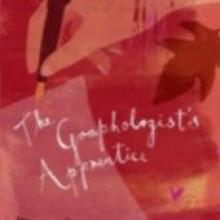
Whiti Hereaka
Huia, $35, pbk
Whiti Hereaka has in the past five years made a place for herself as a playwright and film scriptwriter, with a number of short plays and films to her credit, and more recently with the full-length Te Kaupoi, winner of the 2010 Adam New Zealand Play Award as the best play by a Maori playwright.
In the last four of those years she has also been working on this, her first novel.
From this long gestation period has emerged a well-crafted story bearing the mark of the accomplished playwright's hand - a sequence of dramatic scenes involving the interplay of dialogue between a limited number of characters and focusing on the development of the young protagonist, January, through her relationship with the older graphologist of the title, Mae Raine.
When we first encounter January, she has a sorry past behind her, revealed by what she writes of herself for Mae: her attempt to move out from her family of origin to make her own life had resulted only in an unhappiness expressed by her body through a painful eczema, culminating in the "little death" of walking fully clothed into the sea, an attempt to wash away her eczema and old life and become a new person, symbolised by changing her name to January.
Unfortunately, her January existence has been no real improvement: a boring dead-end office job, a refusal to enter into close human relationships, and a self-involved and judgemental attitude to other people coloured by sexual envy and a bitter cynicism.
Her only consolation and excitement come in a fantasy affair with a married man on whom she spies, and the shoplifting of some earrings coveted by the man's beautiful wife.
After she puts on the earrings, the eczema appears again.
In her desperation, January invades the life of Mae, following up a card she sees tacked to a supermarket notice board.
She pushes to become Mae's apprentice, to learn the art of reading character through handwriting, but instead of developing the empathy that Mae thinks essential to the art, January misuses the graphological knowledge and incorporates it into her fantasy affair.
Learning empathy and getting outside her own fantasies and judgements comes only when Mae catches her writing love letters to herself as if they were from her "lover", and their relationship reaches a crisis point that moves January to change.
January's development is neatly done, with a nice handling of plot and point of view: we at first see mainly through January's eyes, but as the relationship develops, the point of view moves back and forth between the two women and we can see Mae coming to understand January more fully and January not reciprocating in understanding until the crisis forces her to.
However, the pattern is a bit too neat: January's conversion is not as convincingly shown as is her earlier destructive self-involvement and self-deception.
The last part of the novel feels more like a well-made play, where all is resolved, than like a novel depicting human complexity and contradiction from within.
But the book is immensely readable, with a vivid and economical language and a fine control of structure - a promising debut novel from a writer from whom we shall hear more.
• Lawrence Jones is an emeritus professor of English.












